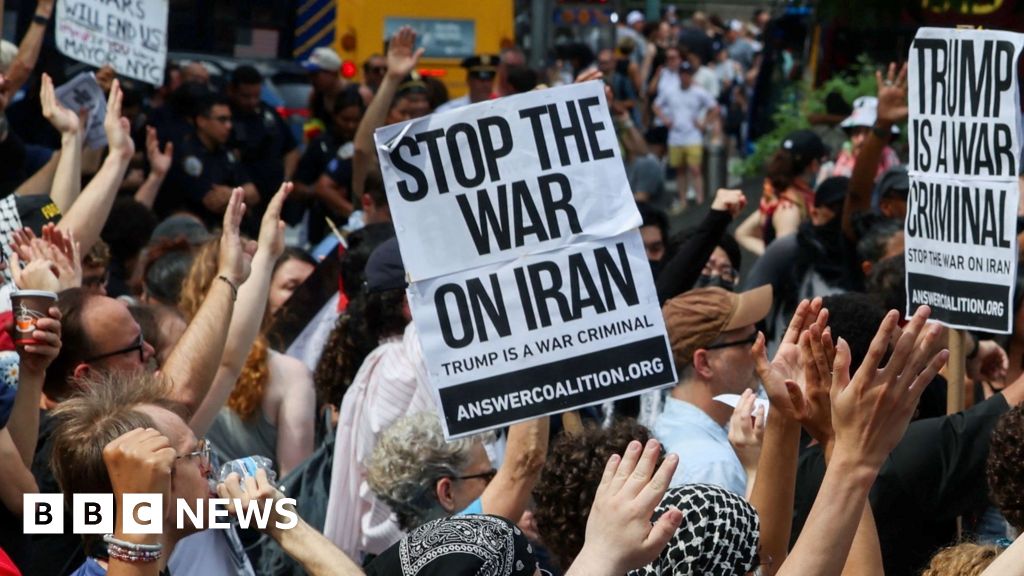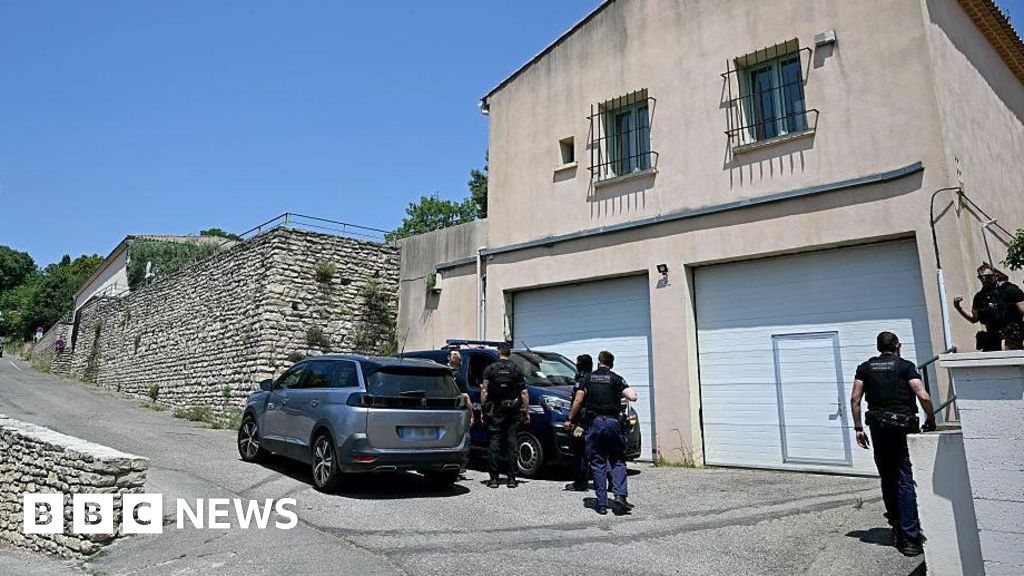
Chief international correspondent
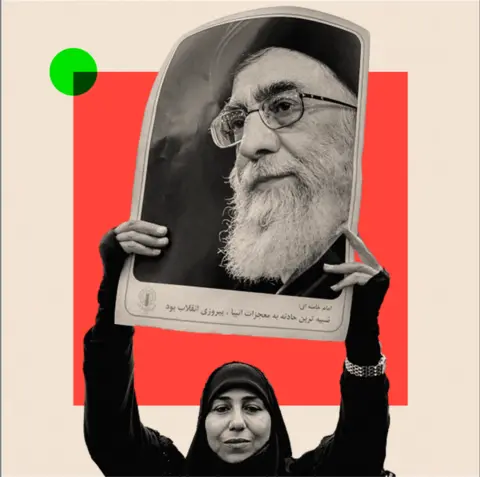 BBC
BBCFor decades, the United States and Iran have carefully avoided crossing a dangerous red line into a direct military confrontation.
One American president after another held back from deploying their military might against the Islamic Republic for fear of sinking the US into potentially the most perilous Middle East war of all.
Now, the commander-in-chief, who promised to be a president of peace, has crossed this Rubicon with direct military strikes on Tehran’s nuclear sites – the most consequential move yet in the second term of a president who has prided himself on breaking all the old rules.
It’s an unprecedented moment provoking alarm in capitals the world over.
Iran’s next move could be even more momentous. Its 86-year-old supreme leader Ayatollah Ali Khamenei, now reported to be sheltering in a bunker, has spent nearly four decades cautiously playing a long game against his most powerful enemy to protect his most important asset – the Islamic Republic.
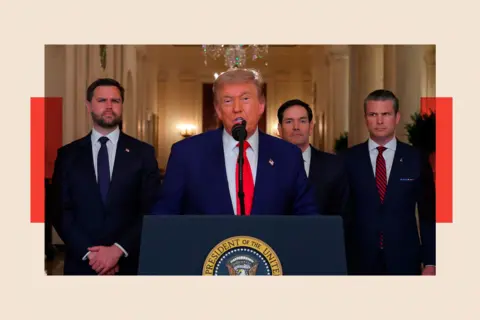 shutterstock
shutterstockIf he does too little, he will lose face; if he does too much, he could lose everything.
“Khamenei’s next moves will be the most consequential not just for his own survival but for how he will do down in history, ” says Sanam Vakil, Director of the Middle East and North Africa programme at think tank, Chatham House.
“His poisoned chalice is potentially more potent than the one Khomeini drank in 1988,” she continues, referring to the reluctant decision of Iran’s first revolutionary leader to bitterly accept a ceasefire in the devastating Iran-Iraq war.
“This is not a war Iran wants”
In the past ten days, intense Israeli strikes have inflicted more damage on Iran’s chain of command and military hardware than its eight-year war with Iraq, which still casts a long shadow across Iranian society.
Israeli attacks have eliminated many in the top ranks of Iran’s security forces along with leading nuclear scientists. America’s entry into this conflict has now ratcheted up the pressure.
The Islamic Revolutionary Guard Corps (IRGC), founded in the aftermath of Iran’s 1979 revolution, is defiantly warning of retaliation against the US that would leave it with “lasting regret”.
But behind a sharp war of words lie urgent calculations to avoid calamitous miscalculation.
“This is not a war Iran wants,” says Hamidreza Aziz, of the Middle East Council on Global Affairs. “But we’re already seeing arguments by regime supporters that, regardless of the extent of actual damage the US might have inflicted, the image of Iran as a strong country [and] as a regional power, has been shaken so dramatically [that] it requires a response.”
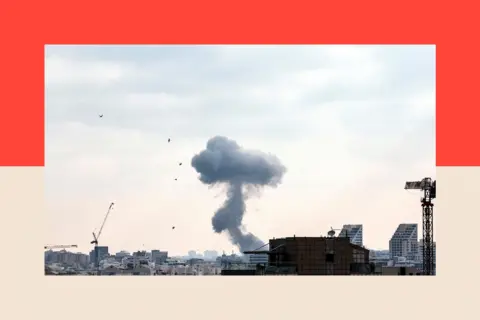 Reuters
ReutersEvery response is risky, however. A direct attack on one of about 20 US bases in the Middle East, or any of the more than 40,000 American troops, would likely trigger major US retaliation.
Closing the Strait of Hormuz, the strategic waterway for a fifth of global oil traffic, could also backfire by upsetting Arab allies in the region, as well as China, the main customer of Iran’s own oil. Western naval powers could also be drawn in to protect this major “choke point” and avert significant economic shocks.
And what Iran had regarded as its “forward defence,” its network of proxies and partners across the region have all been weakened or wiped out by Israeli assaults and assassinations during the last 20 months of war.
It’s not clear if an acceptable threshold exists for Iran to be seen to return fire without provoking America’s wrath, which would allow both sides to pull back from the brink.
This tortuous relationship was tested at least once before. Five years ago, when President Trump ordered the assassination of IRGC commander Qasem Soleimani with a drone strike in Baghdad, many feared it would spark a vicious spiral. But Iran telegraphed its counter attack through Iraqi officials, targeting sections of US bases which avoided killing US personnel or causing significant damage.
But this moment is of far greater magnitude.
“The US, not Iran, betrayed diplomacy”
President Trump, who had repeatedly expressed his preference to “do a deal with Iran” rather than “bombing the hell out of it” now seems to be firmly in Israel’s corner. He described Iran as the “bully of the Middle East,” bent on building a nuclear bomb – a conclusion not shared by previous US intelligence assessments.
Intelligence teams are now analysing in detail the results of what the Pentagon says was the “largest B-2 operational strike in US history”. It inflicted “extremely severe damage and destruction” to Iran’s main nuclear sites at Natanz, Isfahan, and Fordow.
Only “bunker-busting” bombs could penetrate the Fordow facility buried deep in a mountain.
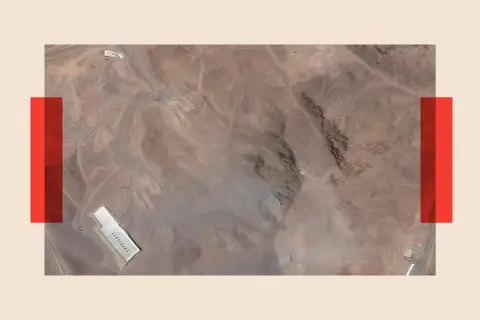 Reuters
ReutersPresident Trump is now urging Iran to “come to peace”.
But Iran now views the US’s diplomatic path as surrender too. In Geneva on Friday, where Foreign Minister Abbas Araghchi met his European counterparts, a tough message was conveyed that Washington expected Tehran to reduce its nuclear enrichment to zero.
It’s a demand Iran rejects as a violation of its sovereign right to enrich uranium as part of a civilian nuclear programme.
It now considers President Trump’s diplomatic effort, including five rounds of mainly indirect talks conducted by his special envoy Steve Witkoff, to be an elaborate deception.
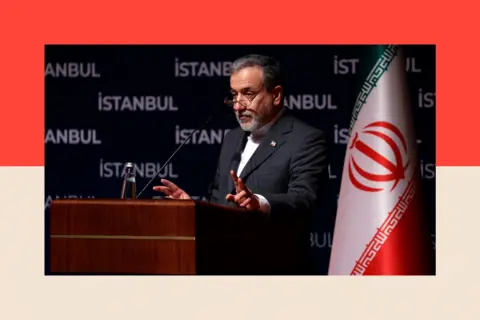 Shutterstock
ShutterstockIsrael unleashed its military campaign two days before the sixth round of negotiations in Muscat. The US entered the war two days after President Trump said he wanted to allow a two-week window to give diplomacy a chance.
Now it says it won’t return to the negotiating table while Israeli and American bombs are still falling.
“It was not Iran, but the US who betrayed diplomacy,” Araghchi told a news conference in Istanbul. During this, he met with foreign ministers of the 57-member Organisation of Islamic Conference who condemned “the aggression of Israel” and expressed their “great concern regarding this dangerous escalation”.
Iran has also tried to highlight an onslaught against its territory which violates the UN Charter as well as warnings from the International Atomic Energy Agency that nuclear facilities should never be attacked, “whatever the context or circumstances”.
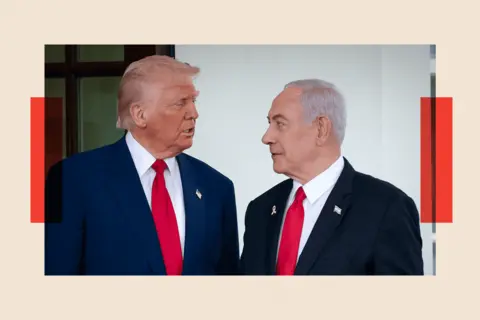 Getty Images
Getty ImagesEuropean leaders are also calling for an urgent de-escalation and a path to curb Iran’s nuclear programme through mediation, not missiles.
But they also reiterate that Iran cannot be allowed to acquire a nuclear bomb. They regard Tehran’s 60 per cent enrichment of uranium, within easy range of 90 per cent weapons grade, as an ominous indication of its intentions.
“Iran is likely to underplay the damage to its sites and insist its nuclear program has survived these unprecedented attacks,” argues Ellie Geranmayeh, deputy head of the Middle East and North Africa programme at the European Council on Foreign Relations.
“The US may over-exaggerate the damage, so the Trump can claim military victory without getting dragged into further strikes.”
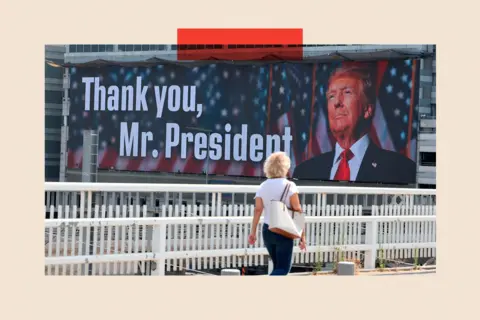 Shutterstock
ShutterstockPresident Trump will be pulled in one direction by Israel’s Prime Minister Netanyahu, whose own formidable forces will continue attacking Iran to inflict even more damage, triggering yet more Iranian salvos.
But the US leader is also coming under pressure at home from lawmakers who say he acted without congressional authorisation, and supporters who believe he has broken his promise to keep America out of lengthy wars.
And this moment is widely expected to concentrate the minds of Iran’s hardline decision-makers on how to restore deterrence as they try to avoid being targeted themselves.
“This is the great irony,” warns Ms Geranmayeh. “Although Trump has sought to eliminate the nuclear threat from Iran, he has now made it far more likely that Iran becomes a nuclear state.”
Lead image: A demonstrator holds a portrait of Iran’s Supreme Leader. Photography credit: Reuters
BBC InDepth is the home on the website and app for the best analysis, with fresh perspectives that challenge assumptions and deep reporting on the biggest issues of the day. And we showcase thought-provoking content from across BBC Sounds and iPlayer too. You can send us your feedback on the InDepth section by clicking on the button below.
Source link

